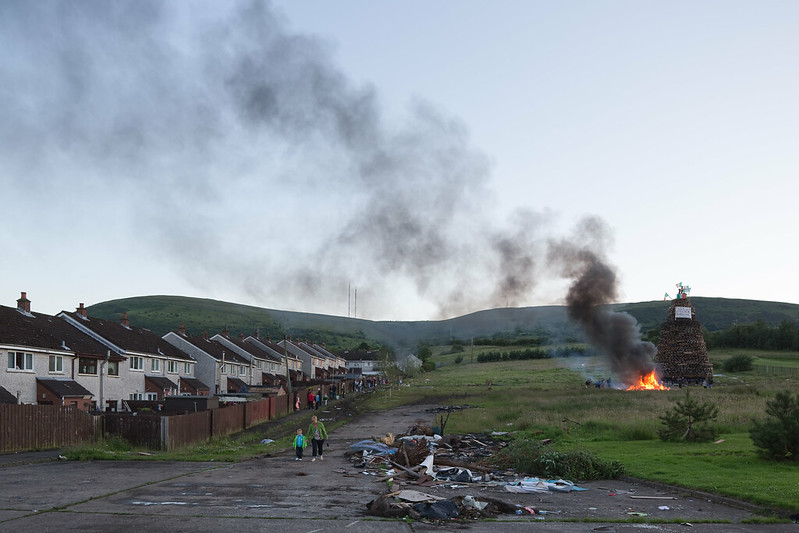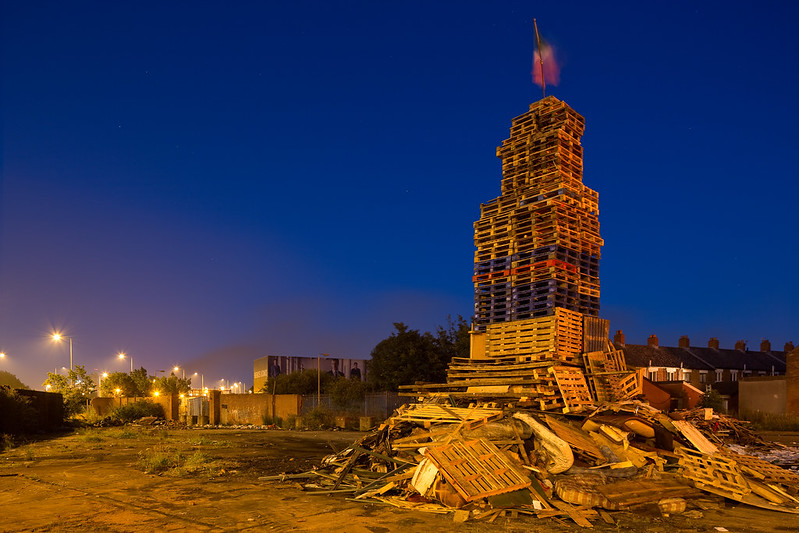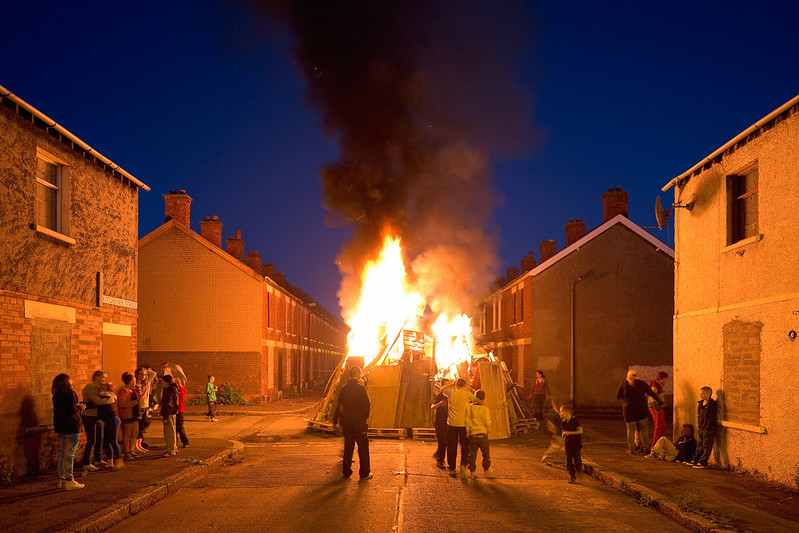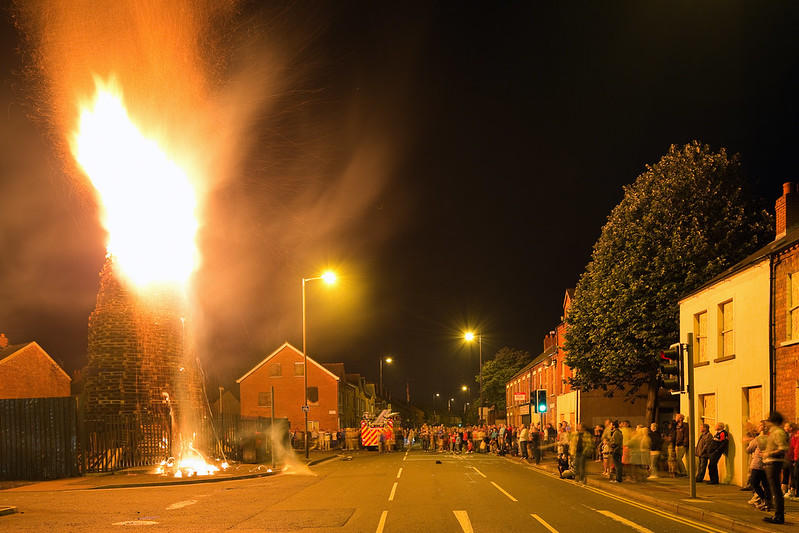I recently visited Belfast, Northern Ireland to continue documentation of Eleventh Night and The Twelfth, two controversial holidays during which Protestant Loyalists build massive bonfires and parade through city streets. While Loyalists describe the events as “family friendly” cultural activities, doing so ignores their role as expressions of Protestant political power and steadfast support for Northern Ireland’s membership in the United Kingdom. Given Belfast’s ongoing conflict between the Loyalists and the Catholic Republicans who desire a politically united Ireland, the holiday activities operate as claims over the contested city.
While the political nature of the parades is somewhat buried in historical references on banners and the often unspoken lyrics of flute band songs, the bonfires unambiguously express political perspectives. Viewers need not know that the stacked pallet and tire bonfires are references to a 17th century Protestant victory over Catholics to know the political and religious stakes. In most communities, political allegiances are boldly proclaimed through flags, whether through the nearly ubiquitous flying of the Union Jack or the burning of the Irish Republic’s Tricolor, as well as through political slogans such as “KAT” (shorthand for “Kill All Taigs” [Derogatory slang for Irish Catholics]) in more aggressive districts.
As the Troubles fade and the reconciliation process continues, the City Council is attempting to facilitate a transition to a new Eleventh Night model by offering financial incentives to burn wood chip beacons in recognition of the historical victory without burning of flags and tires. Still, most Loyalist communities rebuff the subsidies not only because the beacons are fast burning and less visually stunning but because they fear loss of the tradition and the already waning youth interest in bonfire construction — and, ultimately, the political conflict in general. These communities’ perspective on the issue can be summed up by one 2012 bonfire banner: “Culture Above Cash.” When put in context, the banner could just as easily read “Politics Above Cash.”
The following bonfire photographs are selections from my recent work in Northern Ireland. I will be updating my Belfast series page with some of these images shortly. Many additional images may be viewed on flickr.










?: Does anyone know if this tradition migrated with the celtic/brit borderland settlers to the US southern highlands backcountry in the mid-18th century?
?: Or is this just the precursor of Notre Dame football?
Not only are tyres are burned and the environment polluted but the majority of pallets in these bonfires have been stolen from local businesses. No cash subsidies for these businesses!
Excellent photos; how did you get so close to ‘lion’s den’?
When the tradition and religion of a country had to be protected by the king in battle the importance to remember this victory is of the upmost importance to its people.
325 years on
“no surrender”
Remember 1690